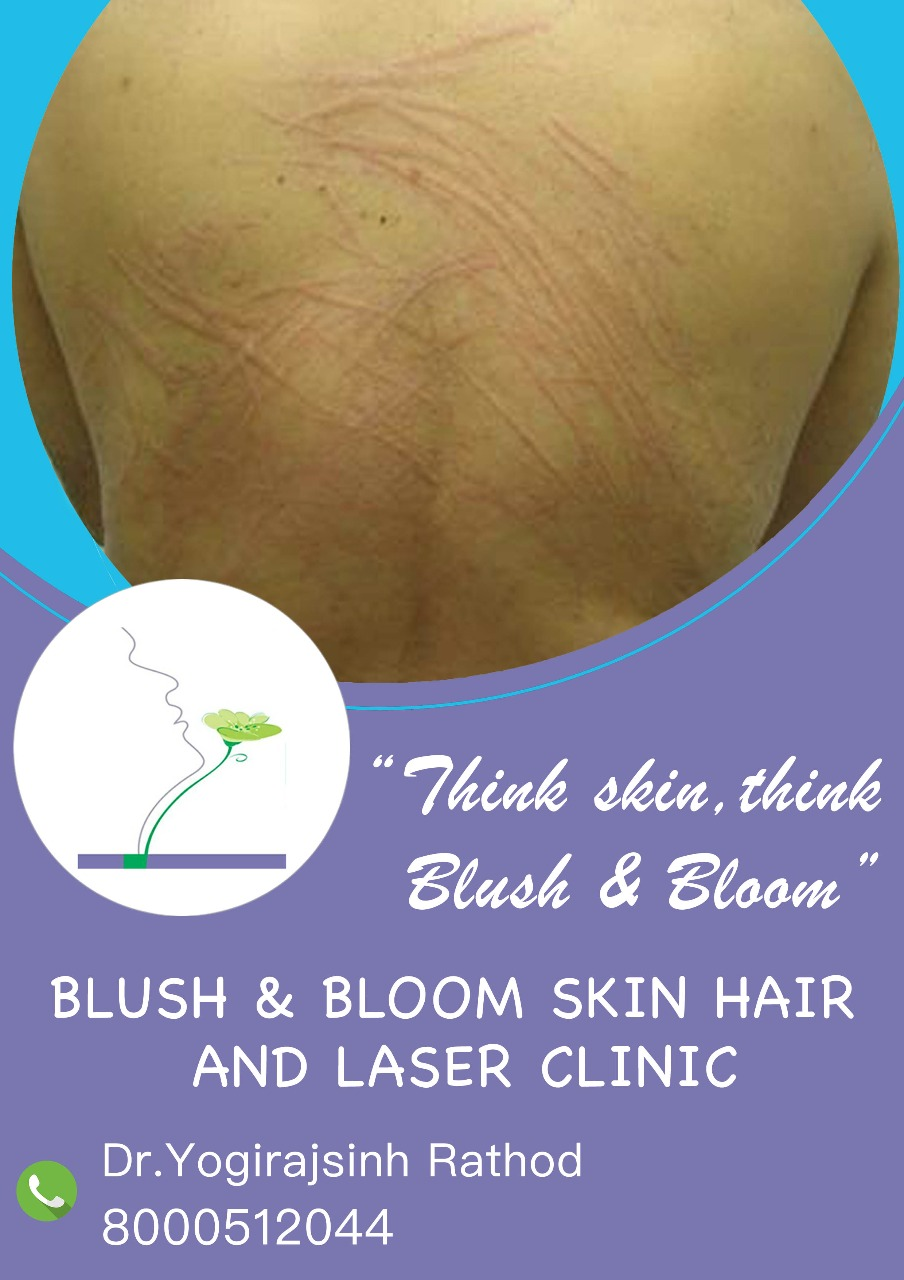
2023-05-05T04:44:15
Urticaria, also known as hives, is a common skin condition that affects millions of people worldwide. It is characterized by the appearance of raised, red, itchy welts on the skin that can vary in size and shape. Urticaria can occur in people of all ages, races, and genders and can be triggered by a variety of factors. At Blush & Bloom Skin Hair & Laser Clinic, Bopal, we understand the discomfort and embarrassment that urticaria can cause. That's why we're here to provide you with all the information you need to know about this condition, its causes, symptoms, and treatments. Causes of Urticaria Urticaria can be caused by a variety of factors, including: 1. Allergies: Urticaria can be caused by an allergic reaction to certain foods, medications, or environmental triggers such as pollen or dust. 2. Infections: Certain viral and bacterial infections can cause urticaria, including the common cold, strep throat, and hepatitis. 3. Stress: Emotional stress can trigger urticaria in some people. 4. Physical triggers: Exposure to heat, cold, or pressure can cause urticaria in some people. Symptoms of Urticaria The most common symptom of urticaria is the appearance of raised, red, itchy welts on the skin. These welts can vary in size and shape and can appear anywhere on the body. They may also come and go quickly, sometimes disappearing within a few hours or days. Other symptoms of urticaria can include: 1. Swelling of the lips, tongue, or face 2. Difficulty breathing 3. Dizziness 4. Nausea or vomiting 5. Fever Treatment for Urticaria The treatment for urticaria depends on the underlying cause of the condition. In many cases, urticaria will go away on its own within a few hours or days. However, if the symptoms persist or are severe, treatment may be necessary. 1. Antihistamines: Antihistamines can be effective in treating urticaria by blocking the release of histamine, a chemical that causes inflammation and itching. 2. Corticosteroids: Corticosteroids can be used to reduce inflammation and swelling in severe cases of urticaria. 3. Immune suppressants: Immune suppressants such as cyclosporine can be used to treat chronic urticaria that does not respond to other treatments. Prevention of Urticaria There are several steps you can take to prevent urticaria, including: 1. Avoiding triggers: If you know what triggers your urticaria, try to avoid these triggers as much as possible. 2. Wearing loose clothing: Tight clothing can cause friction and pressure on the skin, which can trigger urticaria. 3. Using gentle soaps and detergents: Harsh soaps and detergents can irritate the skin and trigger urticaria. 4. Managing stress: Stress can trigger urticaria in some people, so it's important to practice stress management techniques such as meditation, deep breathing, or yoga. In conclusion, if you are experiencing symptoms of urticaria, it is important to seek medical attention from a qualified dermatologist. At Blush & Bloom Skin Hair & Laser Clinic, Bopal, our team of experts can provide you

